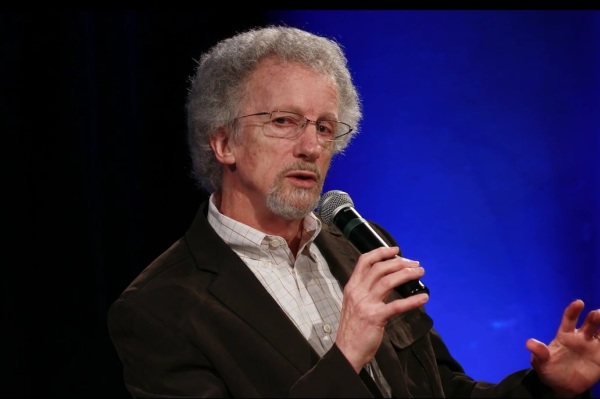Scripture engaged Americans most likely to demonstrate 'neighborliness': poll

Americans who regularly read the Bible are the most likely group to demonstrate “neighborliness” in addition to placing higher premiums on civic participation and mental health than their less religious counterparts, according to a recent report.
The American Bible Society released Chapter 4 of its 12th annual “State of the Bible” report Thursday. The chapter, titled “A Nation of Neighbors,” examined Americans’ embrace of “prosocial priorities,” “civic involvement and life care,” “intellectual humility” and other qualities associated with “neighborliness.”
The State of the Bible survey asked respondents how strongly they agreed or disagreed with statements expressing support for “prosocial priorities.” Specifically, the survey inquired whether they agreed that it was essential to “welcome immigrants into my community, befriend people of other races, befriend people of other religions, care for those who are in prison, care for the environment, advocate for those who are oppressed by society, [and] be a good neighbor.”
Respondents identified as "Scripture Engaged" — defined as “consistent interaction with the Bible that shapes people’s choices and transforms their relationships with God, self, and others" — indicated the highest level of support for “prosocial priorities” based on their responses as measured on a six-point scale.
The other two categories were "movable middle" and "Bible disengaged." Respondents in the “movable middle” include those who “sporadically interact with the Bible” or “periodically open the Bible as a source of spiritual insight and wisdom,” while the “Bible disengaged” rarely interact with the Bible, which has “minimal influence in their lives.”
Scripture engaged Americans scored highest on the six-point scale across all types of “prosocial priorities.” They were more likely to agree with the importance of acting as a “good neighbor” (5.3) than those in the “movable middle” (4.7) or the “Bible disengaged” (4.8).
Overall, Scripture engaged Americans had a higher level of “neighborliness” (9.0) than those in the movable middle or the Bible disengaged, both of whom had a score of 8.3 on the 10-point scale. Neighborliness was calculated based on responses to questions asking how respondents “show compassion to others in little and big ways” and “speak kindly to others even when I disagree.”
The Scripture engaged also outperformed those in the movable middle and the Bible disengaged regarding “loving people.” Activities used to quantify participants’ level of “loving people” included helping strangers, volunteering for a charity other than a place of worship, donating money to a charity other than a place of worship and praying for someone who was not a member of their family.
On a four-point scale determining respondents’ level of “loving others,” the Scripture engaged had an average score of 2.2, while the movable middle and the Bible disengaged obtained average scores of 1.8 and 1.7, respectively.
According to Appendix 1 of the report, data for the report, derived from a survey conducted on Jan. 10-28, with a sample of 8,618 individuals aged 18 and older, at a margin of error of ±2.51%.
John Farquhar Plake, director of Ministry Intelligence for the American Bible Society, reacted to the research in a statement. “In a ruthless cycle of news headlines showing suffering and disruption, people are longing to return to neighborliness — desperately hoping for compassion and to see that neighbors will gladly help neighbors when needed,” he said. “Our research shows that regular engagement with Scripture brings hope and healing for people.”
“It also suggests that those who seek to actively live their life according to the Word of God are prone to exhibit kindness and neighborly qualities,” he added. “To show a hurting world what it means to love our neighbors as ourselves, we must return to the pages of the Bible.”
Additionally, Scripture engaged Americans were more likely to see advocating for the impressed as important (4.6) than the Bible disengaged (4.2) and the movable middle (4.1). Only on the issue of caring for the environment did the Scripture engaged match the Bible disengaged in their level of agreement on the importance of a prosocial priority. Both groups scored 4.8 on the six-point scale on that particular issue while the movable middle had a score of 4.4.
The Scripture engaged were also more likely to befriend people of other religions (4.5) compared to the movable middle and the Bible disengaged, both of which scored 4.1 on the scale. Similarly, the Scripture engaged put a higher premium on befriending people of other races (4.8) than both the movable middle and the Bible disengaged (4.2).
The likeliness of the Scripture engaged, movable middle and Bible disengaged to care for those in prison was measured at 4.3, 3.5 and 3.1, respectively. When it comes to welcoming immigrants, the Scripture engaged were also more likely to see the practice as necessary (4.4) compared to the Bible disengaged (4.0) and the movable middle (3.9).
The survey also asked participants for their views on “being aware of civic and government issues,” “advocating for civic and government policies,” “submitting to government leaders,” “living a healthy lifestyle,” “caring for my mental and emotional health” and “practicing wise money management.” It categorized the first three practices as “civic duties” while labeling the latter three as “Life Care.”
Scripture engaged respondents were the most likely to view all six practices as important. On average, the scripture engaged expressed higher support (4.0) for maintaining awareness of civic and government issues than the Bible disengaged (3.7) and the movable middle (3.5). A similar pattern emerged when calculating respondents’ perspectives on the importance of advocating for civic and government policies, with the Scripture engaged achieving a score of 3.5 and the movable middle and the Bible disengaged reaching respective scores of 3.1 and 3.0.
Support for maintaining a healthy lifestyle was also highest among the Scripture engaged (4.5) compared to both the movable middle and the Bible disengaged (4.1). The difference between the groups was not as pronounced on the issue of practicing wise money management, with the Scripture engaged scoring 4.5 and the Bible disengaged in a close second at 4.3. The movable middle obtained a score of 4.0 on the aforementioned issue.
Similarly, all three groups demonstrated similar levels of support for caring for their mental and emotional health. While the Scripture engaged led with a score of 4.5, the Bible disengaged and movable middle were close behind at 4.3 and 4.2, respectively. On the issue of “submitting to government leaders,” the Scripture engaged once again came out on top (3.0), with the movable middle (2.4) and Bible disengaged (2.0) accumulating lower scores.
The survey measured respondents’ “intellectual humility” by seeking their level of agreement with the ideas that it is possible to respect that one disagrees with and recognize that they might have good points. The research also sought to find out whether Americans were “willing to hear others out” even if they disagreed with them and welcomed “different ways of thinking about important topics.”
Based on their responses to the prompts mentioned above, the survey determined that the Scripture engaged had the highest level of intellectual humility, at 22.0, followed by the Bible disengaged (21.0) and the movable middle (20.6).
Not surprisingly, those in the Scripture engaged category also indicated higher participation levels in activities associated with “loving God.” The survey determined how “loving” people were by asking them how frequently they “prayed to God,” “meditated,” volunteered at their place of worship and “donated money to a place of worship or other religious charity.” Scripture engaged respondents had an average score of 2.6 on a four-point scale quantifying “loving God” as opposed to 1.7 for the movable middle and 0.7 for the Bible disengaged.
Ryan Foley is a reporter for The Christian Post. He can be reached at: ryan.foley@christianpost.com





















